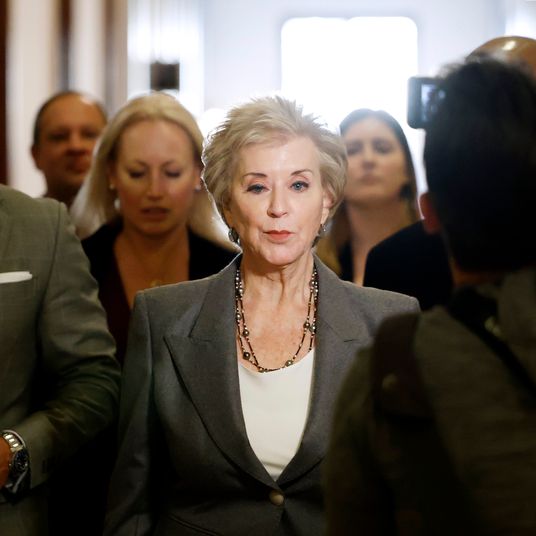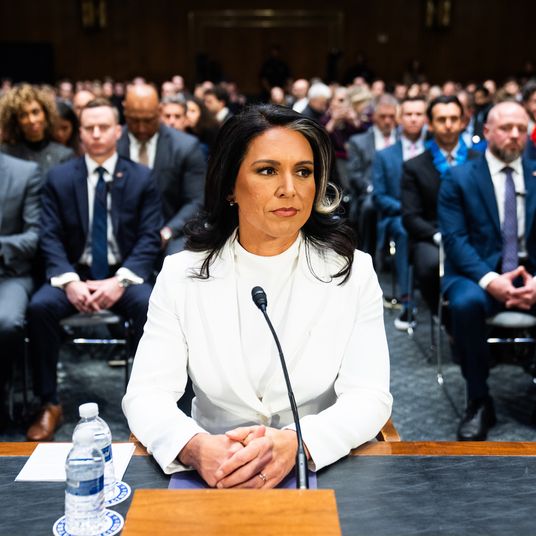
For much of American history, institutional norms prevented partisans on Capitol Hill from deploying the full extent of their legal powers in service of their ideological goals.
For example, even though a Republican-controlled Senate could technically prevent a Democratic president from ever filling a Supreme Court vacancy, they wouldn’t actually do so — because norms dictated that the Senate approve the president’s judicial nominees, so long as they displayed a modicum of competence and qualifications.
Similarly, while members of the Senate minority could disrupt the functioning of an agency whose work they oppose by filibustering every appointment to said agency, that kind of thing simply wasn’t done. And this restraint on the minority’s part ensured that, even though the upper chamber’s majority party could eliminate the filibuster for such appointments, it would have no cause for doing so.
These three norms did not survive the Obama presidency — or, more precisely, Mitch McConnell’s strategy for undermining it.
And, ultimately, those norms probably needed to die. In an era of ideologically polarized parties, chummy gestures of deference don’t make much sense. If your party believes that abortion is genocide — and has the power to save a seat on the Supreme Court for a justice who agrees — who cares about “norms” and precedents? Millions of lives — and decades of judicial rulings— are at stake!
Separately, if one believes in democratic rule, the power of a minority (within in the grotesquely undemocratic Senate) to block appointments and legislation ain’t a power worth preserving.
Still, while small-d democrats might welcome the erosion of these checks on the majority’s power to govern, the timing of their erosion couldn’t be much worse for those of the big-D variety: After Republican intransigence forced Harry Reid to nuke the filibuster on non-Supreme Court appointments, Democrats were left powerless to prevent President Trump from handing the executive branch over to a motley crew of racists, reactionaries, and dimwits.
And Mitch McConnell has made it clear that if Democrats try to block Neil Gorsuch’s path to Antonin Scalia’s (and/or Merrick Garland’s) old seat, the Supreme Court filibuster will be laid to rest.
It’s unclear whether the Senate GOP has lost all restraint; many still insist they have no intention of killing the legislative filibuster, even if Democrats withhold cooperation on an Obamacare replacement. But if some Republicans still feel a bit of fealty towards institutional norms, Donald Trump isn’t one of them — and Senate Democrats are worried that he has one of the minority’s few remaining powers in his crosshairs.
Federal regulatory commissions are generally staffed by either five or six members. The majority party is statutorily prohibited from having more than three of its members on any one commission. This has historically guaranteed that the minority party will have significant — if not equal — sway on these regulatory bodies.
But in recent days, the president has begun withdrawing the nominations of duly selected (would-be) regulators, leading Democrats to suspect that Trump may try to keep them off certain commissions, entirely. The Huffington Post’s Sam Stein and Ryan Grim explain:
Historically, the White House has largely deferred to Senate committees in naming a commission’s minority party members. The nominees are then sent to the Senate as a pair as a means of expediting their confirmation. But Democratic sources on the Hill worry that the Trump administration has conceived of a way to get around these norms.
Although it can’t stack commissions with more Republicans, it can replace Democrats with registered Independents who are ideologically conservative. One counsel to a Senate Democrat said the administration “may actually be able to do this legally.” Others cautioned, that it’s not yet clear if Trump will go down this path.
Already, however, at least one Obama-era holdover commission nominee subjected to oversight from the Senate Banking Committee has been pulled, according to a separate Senate source familiar with the maneuvers. That source declined to name names. But the nomination of Brian D. Quintenz to the CFTC was formally withdrawn by the president on Tuesday night (while another CFTC nominee is in limbo), and Claudia Slacik’s nomination to serve as a member of the Board of Directors of the Export-Import Bank was withdrawn as well.
Stein and Grim suggest that McConnell may be too strong an “institutionalist” to abet Trump’s power grab. But Democrats can be forgiven for lacking faith in on Mitch McConnell’s commitment to procedural conservatism.






























